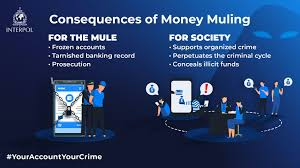Sandran Samoo, a welding trainer at NTUC LearningHub, was sentenced to four months in jail and fined $26,570 for collecting bribes from trainees between 2016 and 2022.
The 52-year-old Malaysian permanent resident of Singapore told trainees that his welding course was difficult to pass but offered to help them succeed in the final assessment if they paid him between $100 and $200 (or whatever they could afford). Through this scheme, he collected over $26,000 in bribes over several years, primarily from foreign trainees.
Though the welding certificate wasn’t legally required for workers to perform welding work, most Singapore employers would only allow workers with such certification to do welding jobs. Sandran falsely implied he could influence the assessment results, despite knowing a third party was responsible for evaluating the tests.
He was caught in September 2023 when a trainee reported him to his employer, who then alerted both NTUC and the Corrupt Practices Investigation Bureau. Upon investigation, Sandran admitted to soliciting bribes since 2016, averaging about $350 per month ($3,600 annually).
Under the Prevention of Corruption Act, the maximum penalty for corrupt transactions as an agent is five years’ imprisonment, a fine up to $100,000, or both.
Analysis of the NTUC LearningHub Corruption Scam
The Corruption Scheme
This case represents a classic example of small-scale systemic corruption that operated for years under the radar:
- Position of Authority: Sandran Samoo leveraged his position as a welding trainer and assessment invigilator to create a perception of influence.
- Manufactured Difficulty: He deliberately emphasized the difficulty of passing the assessment to create anxiety among trainees.
- False Promise of Influence: Despite knowing a third party evaluated the tests, he implied he could influence outcomes.
- Targeted Vulnerability: He primarily targeted foreign trainees who were likely:
- Were unfamiliar with proper procedures
- Felt pressure to obtain certification for employment
- May have feared reporting misconduct due to job security concerns
- Low Payment Threshold: By accepting even small amounts ($100-200), he made the bribe accessible to most trainees.
- Long Duration: The scheme operated for approximately 6 years before detection.
Red Flags and Detection Points
The case highlights several common corruption indicators:
- A gatekeeper soliciting payments for outcomes they claim to control
- Claims of exceptional difficulty followed by offers of special assistance
- Targeting vulnerable populations (foreign workers)
- Operating in an environment with limited oversight
Anti-Scam Resources in Singapore
If you encounter similar corruption or scams in Singapore, here are resources to help:
- Corrupt Practices Investigation Bureau (CPIB)
- Hotline: 1800-376-0000
- Website: www.cpib.gov.sg
- Where to report corruption and bribery cases
- Singapore Police Force – Anti-Scam Centre
- Hotline: 1800-255-0000
- Scam Helpline: 1800-722-6688
- Website: www.police.gov.sg/I-Witness
- National Crime Prevention Council – ScamAlert
- Website: www.scamalert.sg
- Provides updates on the latest scams and prevention tips
- Ministry of Manpower (MOM)
- For foreign workers facing workplace issues
- Hotline: 1800-221-9922
- NTUC Whistleblower Reporting
- Email: [email protected]
- For reporting misconduct within NTUC organizations
If you encounter any suspicious activities requiring certification or examination, verify the proper procedures with the official organization directly rather than relying solely on an individual trainer or examiner.
Anti-Corruption and Anti-Scam Measures in Singapore
If you’re applying to work, study, or live in Singapore, it’s important to understand the country’s approach to corruption and scams and how to protect yourself.
Singapore’s Anti-Corruption Framework
Singapore is known globally for its strong stance against corruption:
- Zero-Tolerance Policy: Singapore maintains one of the world’s strictest anti-corruption frameworks, consistently ranking among the least corrupt countries globally.
- Corruption Practices Investigation Bureau (CPIB): An independent agency with extensive powers to investigate and prosecute corruption cases.
- Severe Penalties: As seen in the NTUC case, corruption offenses can result in jail time and significant fines.
What to Know When Applying to Singapore
For Employment
- All legitimate job offers should come through official channels
- Be wary of requests for payments to secure jobs or work passes
- Verify employment agencies are licensed with the Ministry of Manpower
- Official processing fees for work passes should only be paid to government agencies
For Education/Training
- Certification processes have standardized procedures
- Trainers/instructors should not request personal payments for passing courses
- Verify educational institutions’ accreditation with the Committee for Private Education
For Permanent Residency/Immigration
- All immigration processes go through official Immigration & Checkpoints Authority channels.
- Be suspicious of third parties claiming to “guarantee” approval for a fee
- Government processing fees are transparent and officially published
Signs of Potential Corruption/Scams
- Requests for “speed money” or “processing fees” paid to individuals
- Claims of remarkable influence over official processes
- Offers to bypass official procedures or requirements
- Requests for payments in cash or to personal accounts

Reporting Resources
If you encounter corruption or scams while applying to Singapore:
- CPIB Hotline: 1800-376-0000
- Police Hotline: 1800-255-0000
- Ministry of Manpower: 1800-221-9922 (for work-related issues)
- Immigration & Checkpoints Authority: 6391-6100
Singapore’s strong legal framework and efficient reporting systems make it relatively safe from widespread corruption, but remaining vigilant is still essential when navigating application processes.
Analysis of Scam Types and Prevention in Singapore

Based on the document, here’s an analysis of the scam types prevalent in Singapore and the prevention strategies being implemented:
Main Scam Types
- Self-Effecting Transfer Scams
- Most common type where victims willingly transfer money to scammers
- Psychological tactics target emotions like desire for companionship, respect for authority, and greed
- Victims often refuse to believe they’re being scammed

- Malware and Phishing Attacks
- Target bank accounts and online credentials
- Often involve sophisticated technical deception
- Phone/SIM-Based Scams
- Scammers using local phone numbers to make calls and send SMS
- Creates a false sense of legitimacy
- Cryptocurrency Scams
- Fake crypto trading interfaces that simulate profits
- Malware/phishing to drain crypto wallets
- Requesting victims convert money to cryptocurrency to evade banking safeguards
- Social Media and Messaging App Scams
- 60% of scams occur through these platforms
- Telegram specifically mentioned as a platform of concern (scam reports doubled in 2024)

Prevention Strategies
Government Regulatory Measures

- Protection from Scam Bills (January 2025)
- Empowering police to temporarily restrict banking transactions as a last resort
- Target cases where victims refuse to believe they’re being scammed
- SIM Card Regulations
- Limits on post-paid SIM card ownership
- Criminalization of SIM card misuse and transfer
- Penalties for SIM card abuse in scams
- Online Criminal Harms Act
- Requires online services to implement anti-scam measures
- Encourages robust user verification against government-issued IDs
- Potential for additional legislative action against platforms like Telegram
Banking/Financial Protection

- Enhanced Authentication
- FIDO-compliant hardware tokens being studied
- Requires physical proximity for transaction authentication
- Transaction Safeguards
- Cooling-off periods for high-risk transactions
- Enhanced fraud analytics
- Information sharing on money mule accounts
- Cryptocurrency Protection
- Working with MAS-licensed digital payment token providers
- Strengthening operational links with law enforcement

Public Education and Empowerment
- ScamShield Suite
- Launched September 2024
- Allows the public to check, report, and stay updated on scams
- ScamShield hotline (1799) for assistance
- Targeted Awareness Campaigns
- Monthly media campaigns
- Tailored to vulnerable population segments for specific scam types

Key Challenges and Trends
- Rising Financial Impact
- Total losses reached $1.1 billion in 2024 (a 70% increase from 2023)
- Evolving Tactics
- Scammers pivoting to local phone numbers
- Increased use of cryptocurrency to evade banking safeguards
- Exploitation of anonymity on messaging platforms
- Cross-Platform Nature
- Requires collaboration between government, tech companies, and financial institutions
- International dimension (implied by sophisticated criminal syndicates)

The Singapore approach appears multifaceted. It combines regulatory powers, technological solutions, industry collaboration, and public education to create a comprehensive anti-scam ecosystem. The emphasis on both preventive measures and empowering individuals to recognize scams suggests a balanced strategy to address this growing threat.
Singapore’s Anti-Scam Centre (ASC) Measures
Based on the information available, here’s an analysis of the Anti-Scam Centre’s approach and measures:
Core Functions and Capabilities
- Rapid Response System
- The ASC is mentioned in the article as an entity that scammers impersonate
- Works with banks to trace and freeze accounts linked to scam proceeds
- Collaborates with telecommunication companies to terminate phone lines used in scams
- Coordination Role
- Partners with Commercial Affairs Department’s Anti-Scam Command (ASCom)
- Facilitates multi-agency operations like the recent islandwide blitz
- Serves as a centralized hub for scam prevention and intervention

Intervention Strategies
- Disrupting Financial Networks
- Freezing accounts to prevent scammers from accessing funds
- Seizing suspected proceeds (nearly $1M in the recent operation)
- Targeting money mules who provide banking infrastructure
- Technical Countermeasures
- Working with telecoms to terminate scam-linked phone lines (700+ in the recent operation)
- Likely monitors digital communications channels for scam patterns
- Public Education
- Issues reminders about legitimate government communications:
- Government officials never request money transfers
- Official entities don’t ask for banking, SingPass, or CPF information over the phone
- Issues reminders about legitimate government communications:

Results and Impact
The recent operation demonstrates the ASC’s effectiveness:
- Over 30 arrests
- 240+ bank accounts frozen
- Nearly $1M in proceeds seized
- 700+ phone lines terminated
Strategic Approach
The ASC appears to employ a three-pronged strategy:
- Preventive measures – Public education and awareness campaigns
- Detective measures – Identifying and tracking scam operations
- Reactive measures – Freezing accounts, making arrests, and recovering proceeds

Challenges
Despite these efforts, the high volume of cases (1,504 reported government impersonation scams in 2024) and significant losses ($151.3M) suggest ongoing challenges in:
- Keeping pace with evolving scam techniques
- Reaching vulnerable populations before they become victims
- Addressing cross-border aspects of scam operations
General Scam Prevention Tips
- Trust your instincts
- If an offer seems too good to be true, it probably is
- Keep personal and financial information confidential
- Stay informed about the latest scam techniques
- Report suspicious activities to authorities
- Educate family members, especially older relatives
- Use secure, updated technology
- Maintain a healthy level of skepticism online

Maxthon

Maxthon has set out on an ambitious journey aimed at significantly bolstering the security of web applications, fueled by a resolute commitment to safeguarding users and their confidential data. At the heart of this initiative lies a collection of sophisticated encryption protocols, which act as a robust barrier for the information exchanged between individuals and various online services. Every interaction—be it the sharing of passwords or personal information—is protected within these encrypted channels, effectively preventing unauthorized access attempts from intruders.
Maxthon private browser for online privacyThis meticulous emphasis on encryption marks merely the initial phase of Maxthon’s extensive security framework. Acknowledging that cyber threats are constantly evolving, Maxthon adopts a forward-thinking approach to user protection. The browser is engineered to adapt to emerging challenges, incorporating regular updates that promptly address any vulnerabilities that may surface. Users are strongly encouraged to activate automatic updates as part of their cybersecurity regimen, ensuring they can seamlessly take advantage of the latest fixes without any hassle.
In today’s rapidly changing digital environment, Maxthon’s unwavering commitment to ongoing security enhancement signifies not only its responsibility toward users but also its firm dedication to nurturing trust in online engagements. With each new update rolled out, users can navigate the web with peace of mind, assured that their information is continuously safeguarded against ever-emerging threats lurking in cyberspace.
